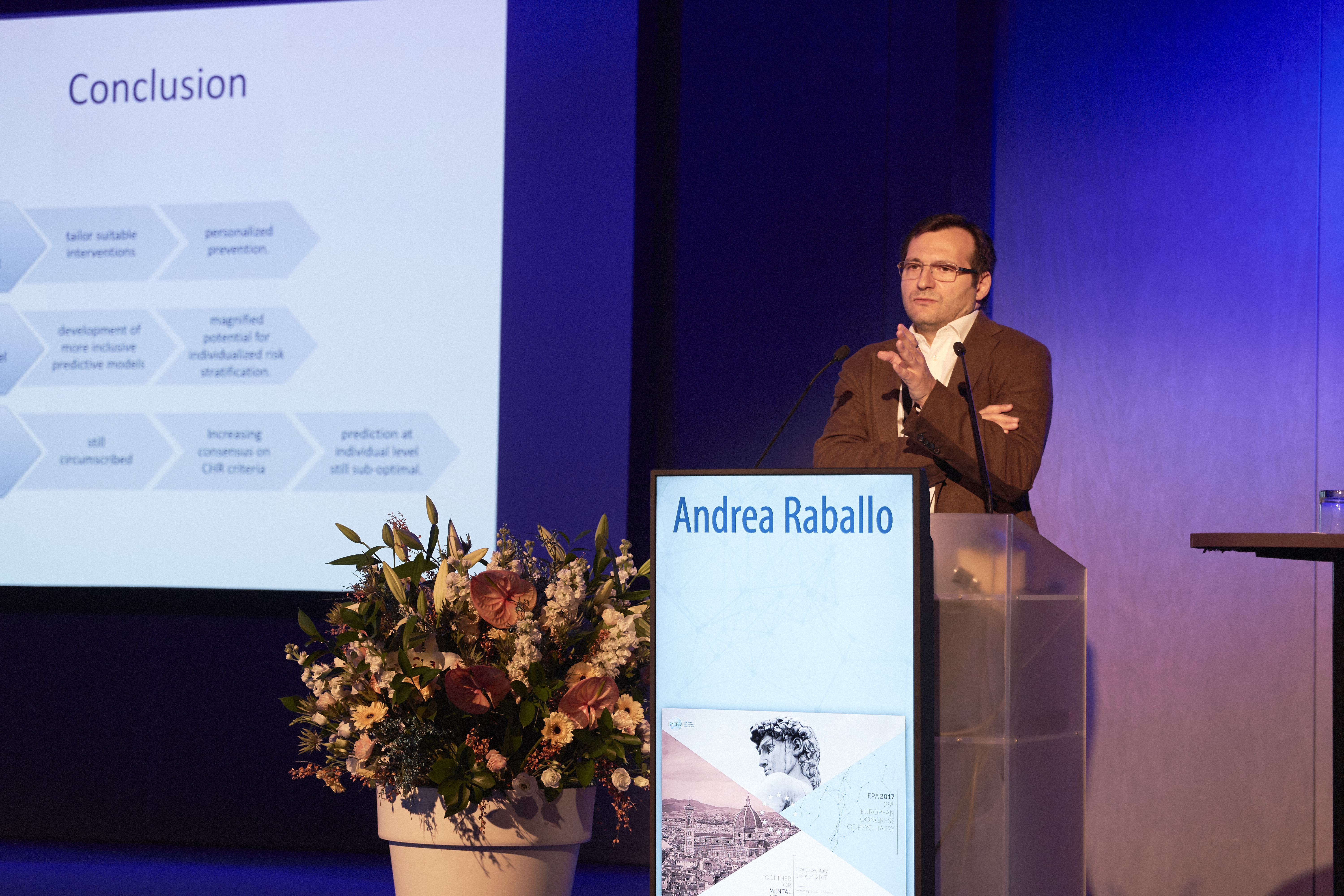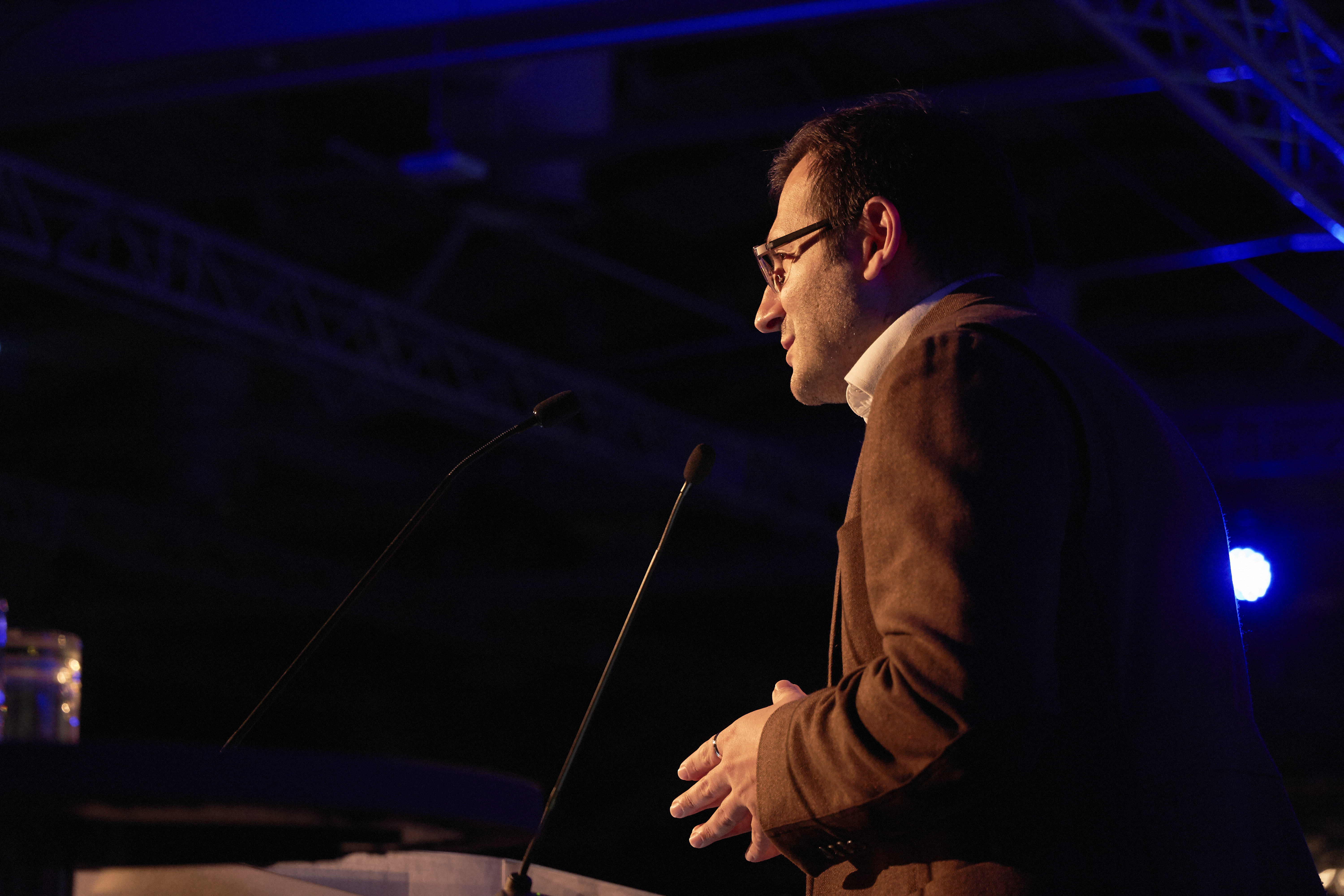




Lo stato attuale della diagnosi precoce e di intervento per la psicosi in Europa, così come le attività future e gli obiettivi in questo settore, sono stati presentati al simposio EPA 2017 presieduto dal Prof Joachim Klosterkötter, Germania, e la Prof.ssa Silvana Galderisi, Italia.
Prof Nadia Maric, University of Belgrade, Serbia, highlighted that there has been a growth in services for early detection and intervention for psychoses. These services are inspired by the staging concept of psychoses, which originated in Australia 25 years ago. They address two critical phases: first episode psychoses as well as at-risk mental states for psychoses. The earliest adopters in Europe were Germany and the UK.
A 2016 report from The London School of Economics and Political Science described well-established networks of early intervention services in a few EU countries (UK, Germany, Norway, Denmark and Italy), but almost no services were identified in the new EU Member States and those with lower income.
Prof Maric and colleagues sought to survey the field of early detection and intervention programs in Europe. A 16-item questionnaire was sent to representatives of 40 EPA National Societies/Associations (NPAs), representing 37 countries. The survey addressed the domains of national guidelines, education and policy; duration of untreated psychoses; and service development status and profile.
Replies were received from 29 NPAs (78%), most of which were developed countries. Seven replies were received from economies in transition. Early detection/early intervention services were implemented in 55% of the included countries, with an average duration of 10 years. Early detection was generally not separated from early intervention.
National guidelines for schizophrenia exist in most of the surveyed countries (74%), but specific chapters focusing on early detection/early intervention and/or at-risk mental states were generally not included. Four countries reported national plans to develop early detection/early intervention. Most counties (64%) could not give an estimate of the duration of untreated psychosis. In counties who did provide an estimate, it ranged from 12 to 100 weeks. The median duration of untreated psychosis in developed counties and economies in transition was 33 and 44 weeks, respectively.
Prof Maric concluded by posing the question: is the glass half full or half empty? The fields of early detection/early intervention have been unequally developed across Europe, and many NPAs are without development plans. This is an opportunity to address the identified gaps and suggest how to harmonize services for the full range of assessments and interventions. In summary - at least we have a glass!
At least we have a glass!
Prof Andrea Raballo, University of Oslo, Norway, presented the perspective that was crystalized by Schultze-Lutter in 2015, ‘In psychiatry, as in medicine, strenuous efforts are made to predict, and subsequently, prevent diseases before their first manifestation and the development of significant disability’. He described the heterogeneity of at-risk mental states as one of the obstacles to effective psychoses prediction. Common tools and terminology are needed to navigate through the ‘diagnostic grey zone’.
Navigate through the ‘diagnostic grey zone’
Prof Raballo described a ‘terminology cloud’- the Babel-type speech confusion in the early detection of psychoses. In fact, the variety of terms may not be such a problem if the underlying concepts and criteria were identical. But they are not.
Each patient’s clinical high-risk state is a complex series of waves, not a simple linear trajectory as is often shown in stylized graphs, Prof Raballo reminded us. In addition, quality of life is impacted even before visualizations. Thought interference, thought pressure, thought blockage, disturbance of receptive speech, and unstable ideas of reference are common in the at-risk state.
Quality of life is impacted even before visualizations
Prof Raballo concluded that the prediction of psychosis at an individual level is a not fully accomplished target, and that more research into the prediction of psychosis onset is needed.
Prof Stephan Ruhrmann, University of Cologne, Germany, acknowledged that the prevention of psychosis has advanced considerably over the past 20 years. He highlighted the EPA’s guidance on early intervention in clinical high-risk states of psychoses, published in 2015. Work is ongoing to improve both prediction, as well as well-tolerated and needs-tailored interventions.
Prof Ruhrmann pointed to the ESPRIT trial, a first episode prevention study with a focus on social cognition. The psychotherapeutic interventions included in this study are Integrated Preventative Psychological Intervention (IPPI) and psychological stress management. A key aspect of IPPI is social cognition, which makes up 10 of the 22 sessions, performed over 25 weeks. Improved function is a key aim of psychosis prevention, which may be improved by social cognition training.
Prof Silvana Galderisi, University of Campania 'Luigi Vanvitelli', Italy, finished off the symposium with a discussion of intervention in early psychosis, which includes two new elements compared to standard care: that of early detection and phase-specific treatments.
Early detection refers to identifying those who are already psychotic, but have not yet been properly treated. It is essential to reduce the duration of untreated psychosis, provide secondary prevention, and promote recovery. But the more difficult question is not ‘why?’ but rather ‘how?’. Prof Galderisi proposed that this could be achieved through a close connection to the existing primary health services; education for the public, schools and healthcare professionals; and setting up dedicated early detection teams.
The more difficult question is not ‘why?’ but rather ‘how?’
Phase-specific treatments are integrated psychological, social or physical inventions, which have been specifically developed for patients in the early stages of illness. They include CBT, ACT, family counselling, social skills training, vocational strategies, medication and home treatment. The aim is to reduce relapse, cope with symptoms and to promote recovery.
Prof Galderisi performed a literature search to identify all European randomized controlled trials designed to reduce duration of untreated psychosis and/or to implement phase-specific treatments for patients with first-episode psychosis.
Only one of these studies included neurocognitive training.
Compared with Standard Care, studies assessing early detection programs reported discrepant findings as to their impact on the duration of untreated psychosis. Phase-specific treatments generally reduced hospitalizations compared with Standard Care; but their impact on symptomatology and social functioning was unclear.
It is known that cognitive dysfunctions have a negative impact on real-life functioning; however, only one of these studies included neurocognitive training. Prof Galderisi proposed the inclusion of psychosocial interventions that target the unmet needs of schizophrenia patients, such as cognitive dysfunction and negative symptoms.